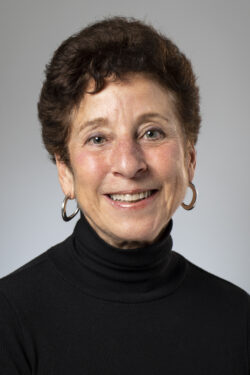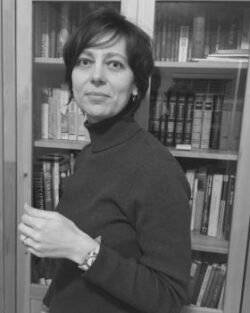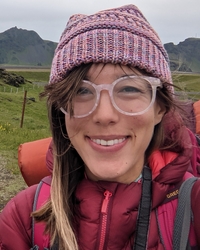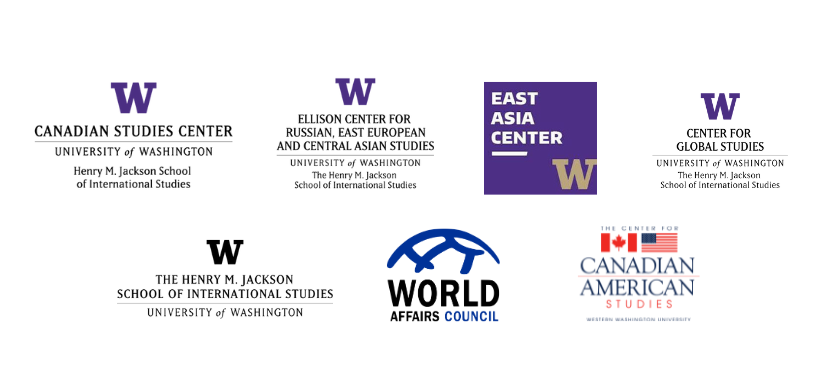POSTPONED: K-12 EDUCATOR WORKSHOP | The Arctic Today: An International Perspective
October 12th, 2023 4:00PM -7:00PM
This program has been postponed. A new posting for a virtual or hybrid event will be posted in the coming weeks.
Date: Thursday, October 12, 2023
Time: 4:00 - 7:00 PM
Location: University of Washington, Husky Union Building (HUB) room 145
Registration Fee: $10.00
The Arctic is the Earth’s refrigerator ensuring that our climate is kept in balance, yet the region is warming at three to four times the rate of the rest of the world. It is home to four million people, 10% of them Arctic Indigenous Peoples, including Inuit, Sámi, Yu’pik, Iñupiat, Gwich’in, Athabascan, Aleut, and Indigenous Peoples in Russia. The Arctic Council representing the region is the only international forum where Indigenous organizations serve almost en par with nation-states. Yet few understand the Arctic. Please join us in-person Thursday, October 12, 2023 from 4:00 - 7:00 PM for a three-hour workshop where educators will be introduced to the Arctic through an international lens--from the perspective of Canada, China and Russia--by top scholars in Arctic studies. Washington State educators are eligible for clock hours upon completion of the workshop.
SESSION 1 | Arctic 101: An Introduction to the Arctic | 4:00 - 5:00 PM
OVERVIEW
This presentation will provide an overview of the unique impacts of climate change in the Arctic and how climate change has contributed to geopolitical tensions. Who owns the Arctic and how do we resolve disputes in the region? What about the latest actors on the international stage - Arctic Indigenous Peoples? The presentation will provide a context for thinking about how the Arctic features into international relations today.
SPEAKER
 Nadine C. Fabbi is interim director of the Canadian Studies Center and Arctic and International Relations in the Henry M. Jackson School of International Studies at the University of Washington. Her research interests include how we understand the Arctic as a unique region in the field of area studies and international studies and what this means in higher education; how Arctic Indigenous internationalism is influencing international relations and regimes such as the Arctic Council; and how policy and spatial activism in Arctic foreign and domestic policies are reshaping how we think about international relations and social justice. Nadine is originally from Canada where the windows on the north side of the house looked out to the Arctic region!
Nadine C. Fabbi is interim director of the Canadian Studies Center and Arctic and International Relations in the Henry M. Jackson School of International Studies at the University of Washington. Her research interests include how we understand the Arctic as a unique region in the field of area studies and international studies and what this means in higher education; how Arctic Indigenous internationalism is influencing international relations and regimes such as the Arctic Council; and how policy and spatial activism in Arctic foreign and domestic policies are reshaping how we think about international relations and social justice. Nadine is originally from Canada where the windows on the north side of the house looked out to the Arctic region!
SESSION 2 | Russia in the Arctic: A Historical Perspective | 5:00 - 6:00 PM
OVERVIEW
This talk will provide an overview of Russia’s historical engagement with the North. It will also discuss the benefits and challenges of a historical approach for understanding the Russian Arctic and the Circumpolar North more broadly.
SPEAKER
 Elena I. Campbell is an associate professor of Imperial Russian history at the Department of History. Her research and teaching interests focus on empire, nationalism, social memory, economic development, environment, and the Circumpolar North. Elena is currently working on a new book project which explores Russia’s northward turn during the late tsarist period. She teaches an undergraduate lecture course, Arctic Histories and serves as UW co-representative in the UArctic. She is also a member of the UArctic Thematic Networks on “Arctic Sustainable Resources and Social Responsibility” and “Arctic Cultures and History.”
Elena I. Campbell is an associate professor of Imperial Russian history at the Department of History. Her research and teaching interests focus on empire, nationalism, social memory, economic development, environment, and the Circumpolar North. Elena is currently working on a new book project which explores Russia’s northward turn during the late tsarist period. She teaches an undergraduate lecture course, Arctic Histories and serves as UW co-representative in the UArctic. She is also a member of the UArctic Thematic Networks on “Arctic Sustainable Resources and Social Responsibility” and “Arctic Cultures and History.”
SESSION 3 | China, the Arctic, and Polar-Observing Satellites | 6:00 - 7:00 PM
OVERVIEW
China has expanded its scientific capabilities in the Arctic with research stations and icebreakers. Yet little attention has been paid to the country’s growing satellite remote sensing capabilities. China launched its first polar observing satellite in 2019 and plans to launch synthetic aperture radar (SAR) satellites to monitor Arctic shipping, too. While data produced by such polar-observing satellites contributes to China’s knowledge about a distant region, it also empowers the state, as a knowledge-producer and knowledge-holder, to participate in Arctic governance. As remote sensing and other computationally intensive techniques become preferred decision-making tools within global governance, as a key producer of satellite data, China’s ability to intervene may grow.
SPEAKER
 Mia Bennett is an assistant professor in the Department of Geography at the University of Washington. As a political geographer with geospatial skills, she researches cultures and practices of frontier-making in the Arctic from the local to regional scales. Her current area of focus is the Nordic littoral, where she is examining the impacts of the construction of commercial spaceports on northern communities. Bennett's methods combine fieldwork and critical remote sensing, a subfield whose development she is helping to lead. Since 2009, she has run a blog on the Arctic, Cryopolitics. Bennett received a PhD in Geography from UCLA and an MPhil in Polar Studies from the University of Cambridge, where she was a Gates Scholar.
Mia Bennett is an assistant professor in the Department of Geography at the University of Washington. As a political geographer with geospatial skills, she researches cultures and practices of frontier-making in the Arctic from the local to regional scales. Her current area of focus is the Nordic littoral, where she is examining the impacts of the construction of commercial spaceports on northern communities. Bennett's methods combine fieldwork and critical remote sensing, a subfield whose development she is helping to lead. Since 2009, she has run a blog on the Arctic, Cryopolitics. Bennett received a PhD in Geography from UCLA and an MPhil in Polar Studies from the University of Cambridge, where she was a Gates Scholar.
This event is sponsored by the Canadian Studies Center; Ellison Center for Russian, East European and Central Asian Studies; East Asia Center; and Center for Global Studies in the Henry M. Jackson School of International Studies, University of Washington; along with the World Affairs Council - Seattle and Study Canada K12 at Western Washington University.
